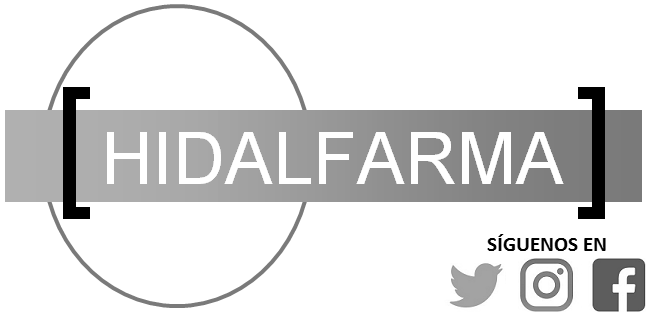
What are nootropics?
Introduction Let’s face it. At some point in our lives, we’ve all had thoughts of how phenomenal it would be to be among the smartest people on earth: learning more things in a short amount of time, being so smart that it puts you on top at work or school. This doesn’t have to remain a dream; it can be real. With nootropics, you can turn these dreams into reality by learning how to harness the full potential and power of your brain. In this article, we’ll explain everything you need to know about this life-changing substance: Nootropics, what they are, how they work, and how effective they are. You will learn how to maximize this substance to improve your creativity, alertness, cognition, memory, and ability to remember. What are nootropics? The term nootropics derives from two Greek words, “nous ” meaning “the mind” and “tropein “” which means “to double.” This term was coined by C.E. Giurgea, a renowned chemist and psychologist, in the late 1990s. According to him, nootropics have the following characteristics: They improve memory and learning ability; They help brain function, even under disturbing conditions; They protect the brain from chemical and physical toxins; They increase natural cognitive processes; Safety: Nootropics have extremely low toxicity and are safe for humans. Nootropics, also known as brain enhancers, are a class of substances that improve brain functions, such as motivation, concentration, memory, and attention. They can be grouped into two different types: Natural and plant-based nootropics; Synthetic nootropics. Natural nootropics are usually obtained in the form of herbal extracts or food supplements. They have been shown to boost brain function while making the brain healthier. As they are of natural origin, they are not usually associated with side effects or addiction. Some examples are Rhodiola, Ginkgo biloba, Panax quinquefolium, etc. Synthetic nootropics are compounds created in a laboratory to boost mental functions. They are often referred to as smart drugs. Some examples are Modafinil, Piracetam, Adrafinil, Racetams, etc. These drugs were created to help with diseases like ADHD, insomnia, Parkinson’s, etc. However, healthy humans take advantage of them to help boost their cognitive functions. Although these compounds are highly effective, they are often associated with side effects and potential long-term consequences. As a result, most require a valid doctor’s prescription to obtain them. Nootropics offer a wide range of benefits. And people who don’t know how they work question their effectiveness. Understanding the human brain and the effect of nootropics on it ensures its effectiveness. Researchers have proposed that nootropics act through multiple brain pathways that will be discussed in detail in this article. The Brain and its Complexity The brain is the most complex structure in the human body, with about 86 billion neurons. It consists of three parts: the cerebellum, cerebrum, and brainstem, with the cerebral cortex accounting for about 80% of its total structure. It accounts for about 3% of the body’s weight and receives about 15% of the body’s blood and 20% of the total oxygen supply. Neurons communicate with each other using neurotransmitters, forming a circuit to share information. Science, with all its advances and research, has not been able to fully understand how the brain works. The uniqueness in size and complexity of the human brain endows them with sophisticated cognitive abilities. So, while the mechanisms of action of some nootropics have been linked to various pathways in the brain, which we will consider, others remain a mystery. Let’s take a quick look at the various pathways and the effect of nootropics on them: Brain Energy The brain, though small, has numerous functions and consumes an exceptional amount of energy. In fact, it is the body’s most energy-consuming organ and burns about 20% of the body’s total energy reserve. The main source of energy used by brain cells is ATP, adenosine triphosphate, obtained through glucose metabolism. This ATP is mainly used for 2 functions: Management of the Agency The brain controls all the processes that regulate our body, such as temperature, touch, thinking, memory, vision, emotions, breathing, motor skills, hunger, etc. It works 24/7, calculating and regulating a number of neurochemical signals, processing and receiving reactions through the body’s neural network. Brain Maintenance Neurons are constantly being injured and dying, so they need a large amount of energy to repair, regenerate, and grow. Nootropics that increase brain ATP supply include Rhodiola Rosea, vitamin B1 (thiamine), ginseng, cordyceps mushrooms, and sulbutiamine. These nootropics boost brain energy by: Improve mitochondrial function and efficiency; They increase cerebral circulation and the uptake of nutrients and oxygen necessary for energy generation. Nootropics increase brain energy, preventing mental fatigue and brain fog, which are manifestations of poor brain energy. Brain Chemicals Brain cells transmit impulses to each other through chemicals called neurotransmitters. These chemicals act as messengers that carry signals or information across synapses throughout the central nervous system. Neurotransmitters do their job by acting on receptors and are aided by other auxiliary chemicals: enzymes and hormones. In order for the brain to function properly, neurotransmitters, receptors, and other auxiliary factors must function optimally. Nootropics help the good function of neurotransmitters: Stimulating the synthesis and release of chemicals and their precursors; Helping the sensitivity of the receptors; Reducing the degradation of neurotransmitters. Neurotransmitters such as glutamine, dopamine, serotonin, adrenaline, norepinephrine, acetylcholine, and gamma-aminobutyric acid (GABA) play an important role in cellular activation, memory, learning, neuroregeneration, thinking, emotion, creativity, and concentration. Nootropics such as L-glutamine, tyrosine, turmeric, ginkgo biloba, vitamin B6, huperzine, and rhodiola all play a role in potentiating the actions of brain chemicals. A 2016 research study highlighted rhodiola’s effect on neurotransmitter regulation. Neuroregeneration and Repair Aging not only splinters the brain, leaving dents, but also modifies it, altering cognitive abilities. Fortunately, contrary to the previous theory that brain cells never recover, research has shown that neurogenesis is possible in adulthood. Since this discovery, neuroscientists have been exploring new ways to increase and maintain a healthy brain cell count. Some substances, including nootropics, have been discovered





